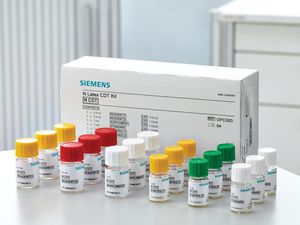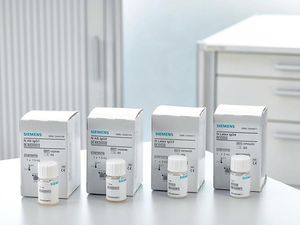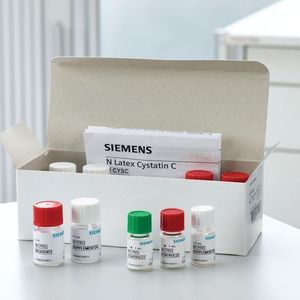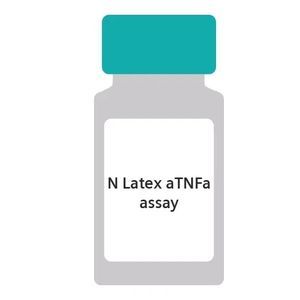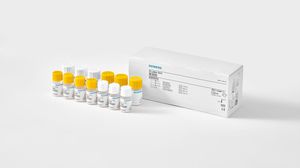
- Laboratory
- Laboratory medicine
- Immunity test kit
- Siemens Healthineers - Laboratory Diagnostics
Monoclonal gammopathy assay kit N Latex FLC seriesfor antibodiesserumplasma
Add to favorites
Compare this product
Characteristics
- Application field
- for monoclonal gammopathy
- Tested parameter
- for antibodies
- Sample type
- serum, plasma, urine
- Analysis mode
- immunoassay, nephelometric
- Result display time
12 min
Description
The first immunoassay with clearance for evaluation of monoclonal gammopathies of undetermined significance (MGUS).1,2
N Latex Free Light Chain (FLC) kappa and lambda assays enable more-reliable management of patients with monoclonal gammopathies. Designed for use on nephelometric Atellica® NEPH 630* and BN™ Systems, these high-sensitivity assays provide:
Concordance with IMWG recommendations and other international guidelines
A single reference range independent of patients’ kidney status
Reliable results without possible value drift over time due to use of monoclonal antibodies and lot-to-lot consistency
One kit for all sample types: serum, plasma, urine, and CSF
Benefits
Unique monoclonal antibodies
One reference range for all patients
High specificity
Nephelometric technology for confidence in results
Cost-efficient packaging
Monoclonal antibodies provide significant advantages in analytical performance:
Higher consistency in results obtained from different reagent lots enables early detection of changes in disease activity and subsequent adjustments to therapy, and ultimately
contributes to improved patient management and outcomes.
In research studies, monoclonal FLC assays produced no false-positive κ/λ ratios in patients with renal impairment.3-5 In comparison, the false-positive rate of polyclonal FLC assays in patients with renal impairment was 8–36%.6,7
FLC testing in MGUS evaluation
Evaluation of monoclonal gammopathies of undetermined significance (MGUS) is very important as it is seen as a precursor to multiple myeloma. Early detection of multiple myeloma facilitates early treatment with a higher patient survival rate.
Catalogs
No catalogs are available for this product.
See all of Siemens Healthineers - Laboratory Diagnostics‘s catalogsOther Siemens Healthineers - Laboratory Diagnostics products
Plasma Proteins
Related Searches
- Siemens Diagnostics test kit
- Solution reagent kit
- Blood assay kit
- Serum assay kit
- Immunoassay assay kit
- Plasma assay kit
- Protein reagent kit
- Diagnostic reagent kit
- Laboratory reagent kit
- Clinical assay kit
- Clinical chemistry reagent
- Siemens Diagnostics biochemistry analyzer
- Quality control reagent kit
- Laboratory software
- Clinical reagent kit
- Virus reagent kit
- Siemens Diagnostics automatic biochemistry analyzer
- Benchtop clinical chemistry analyzer
- Laboratory detection kit
- Test strip
*Prices are pre-tax. They exclude delivery charges and customs duties and do not include additional charges for installation or activation options. Prices are indicative only and may vary by country, with changes to the cost of raw materials and exchange rates.






